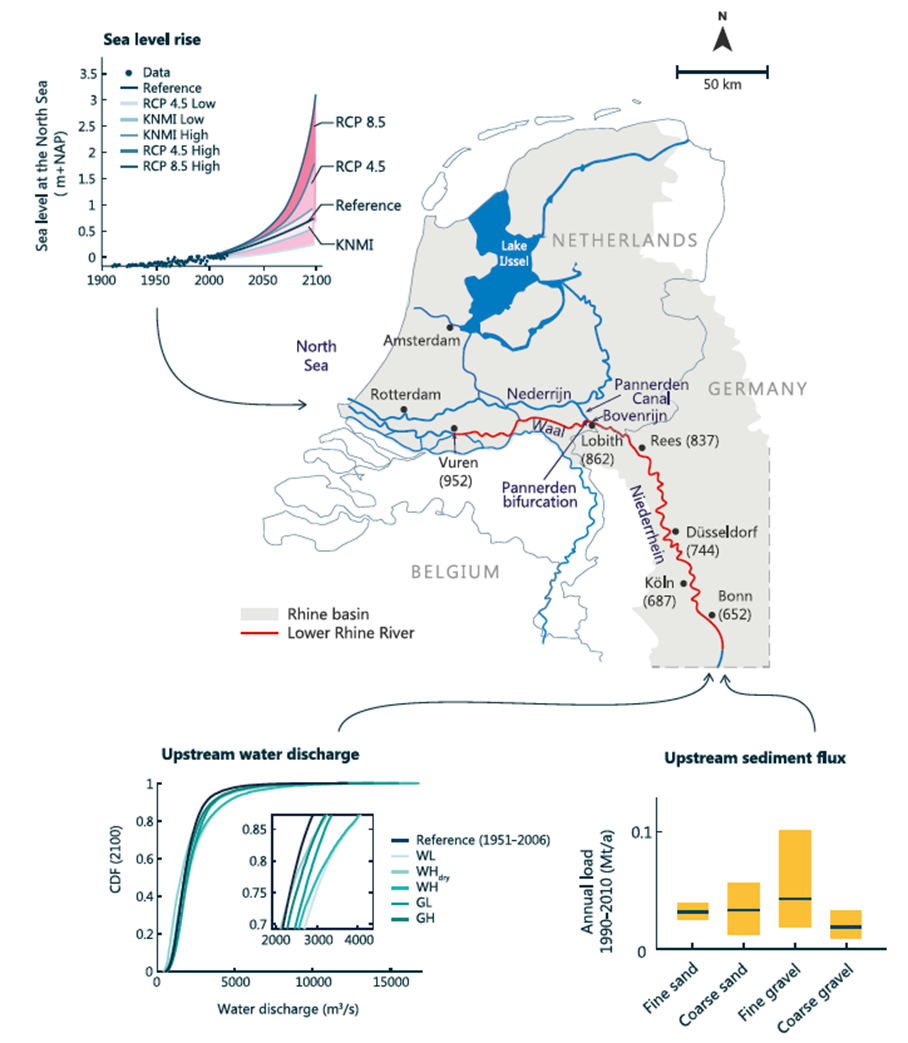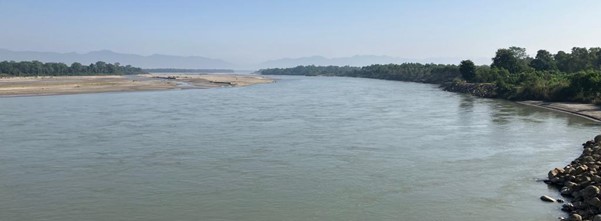Climate change impact on rivers
THE PROBLEM
Climate change increasingly affects our rivers. More frequent and extreme floods, longer and more severe droughts, and sea level rise give rise to additional pressures on navigation, flood risk, freshwater supply, and nature. We need to understand how rivers respond to these changing conditions in order to provide river managers with tools to anticipate climate change impact on rivers. Our research on this topic is typically related to the program of Integrated River Basin Management of the national government, provinces, regional water authorities, and municipalities.
WHAT WE DO
We work with the latest climate scenarios from IPCC and KNMI to account for the uncertainty associated with climate change. Through analysis of field data and numerical modelling, we study how rivers respond to climate-related changes to the river controls (i.e., hydrograph, sea level, and sediment supply) at multi-decadal timescales. We have shown that channel response to human intervention slows down as the river approaches its equilibrium state, but response to climate change accelerates with time. We give particular attention to the role that bifurcations play in this response, and study how the downstream branches respond to peak flows. We illustrate that sudden sediment deposition in one bifurcate (associated with a rapid succession of peak flows) may have triggered a change in the flow partitioning at the Pannerden bifurcation. We assess how such changes leading to a change in flow partitioning are affected by climate change. Our research helps river managers in developing policies for climate adaptation.
CURIOUS TO KNOW MORE ABOUT CLIMATE CHANGE IMPACT ON RIVERS?
Our analyses of climate change impact on rivers provides many opportunities for MSc and BSc thesis projects. These analyses are often applied to engineered rivers, many of which are governed by channel bed incision. The combination of these challenges asks for a sound understanding of the physics of river systems, and your MSc and BSc thesis project may well contribute to this understanding!
ONGOING PROJECTS
- Rivers2Morrow (https://kbase.ncr-web.org/rivers2morrow/) - funded by Rijkswaterstaat and the Directorate General for Water and Soil (DGWB). Rivers2Morrow is a research program that investigates the consequences of climate change and large-scale human intervention on lowland rivers, regarding water safety, ecology, navigability, and morphodynamic adjustment. It focuses on centennial timescales. Partners and collaborations within Rivers2Morrow span the academic sector (Delft University of Technology, Wageningen University & Research, Utrecht University, University of Twente, University of Illinois Urbana-Champaign), the public administration sector (Rijkswaterstaat, PBL Netherlands Environmental Assessment Agency, Programme Integrated River Basin Management, Platform Rivierkennis, Bundesanstalt für Wasserbau), the non-governmental sector (World Wildlife Fund WWF) and the user sector (Deltares, HKV, Royal Haskoning DHV, Blueland Consulting).
- Save the Tiger (https://savethetiger.nl/introduction/) - The objective of this project is to provide appropriate habitat for a sustainable tiger population in The Terai Arc Landscape (TAL). The project aims to understand and model the spatio-temporal dynamics of the grasslands in nature reserves in the TAL.






